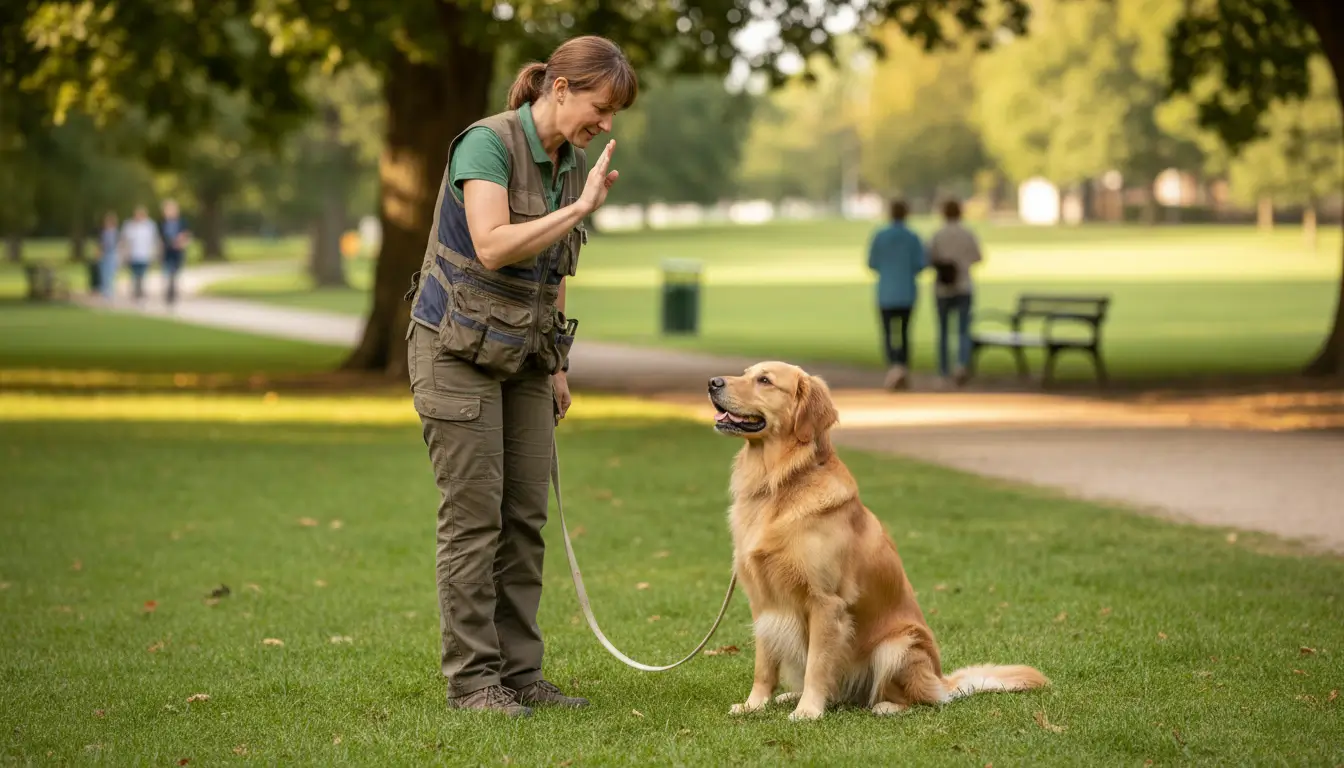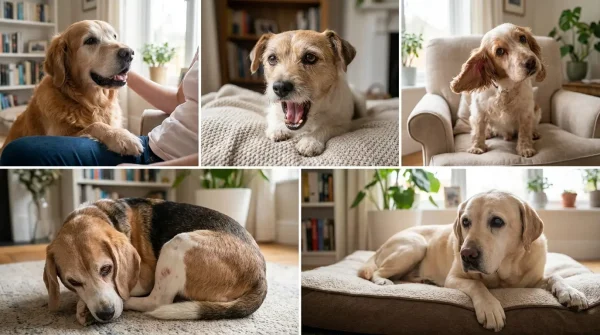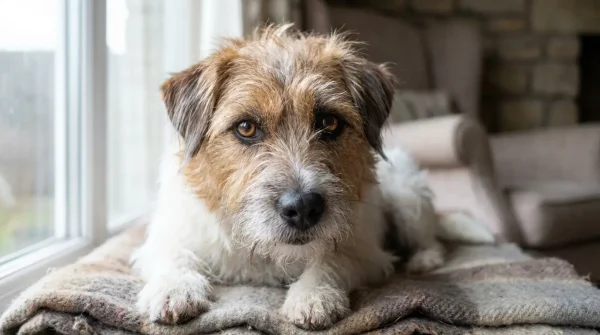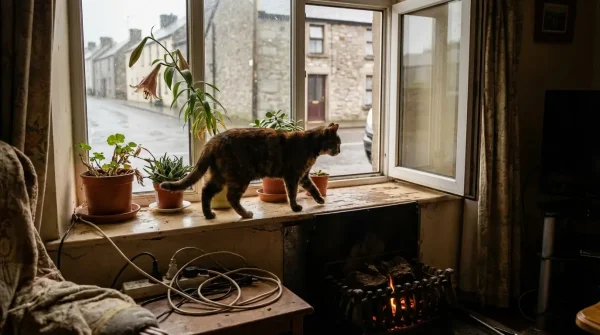Essential Dog Training Guide: Proven Techniques for a Well-Behaved Companion

Training your dog is one of the most rewarding investments you’ll make in your relationship with your four-legged friend. A well-trained dog is not only a joy to be around but also safer, more confident, and better integrated into family life. Whether you’re starting with a new puppy or teaching an old dog new tricks, this comprehensive guide provides proven techniques that Irish dog owners swear by.
Why Dog Training Matters
Dog training goes far beyond basic obedience—it’s about building communication, trust, and mutual respect. In Ireland, where dogs are often part of active, outdoor lifestyles, proper training ensures your companion can safely enjoy everything from beach walks to mountain hikes. Training also provides crucial mental stimulation that prevents boredom and destructive behaviors.
Foundation: Positive Reinforcement Training
Modern dog training centres on positive reinforcement—rewarding desired behaviors rather than punishing unwanted ones. This approach builds your dog’s confidence and strengthens your bond.
Key Principles:
- Timing is everything: Reward within 1-2 seconds of the desired behavior
- Keep treats high-value: Use small, smelly treats your dog loves
- Consistency across family: Everyone should use the same commands
- Short, frequent sessions: 5-10 minutes, 2-3 times daily
Popular rewards include training treats, verbal praise (‘Good boy/girl!’), and play with favourite toys. Find what motivates your individual dog and use it strategically.
Essential Commands Every Dog Should Know
Start with these five core commands that form the foundation of good behaviour:
1. Sit
Hold a treat near your dog’s nose, slowly move it backward over their head. Their bottom will naturally drop. Say “Sit” as it happens, then immediately reward. Practice in various locations with increasing distractions.
2. Stay
Ask your dog to sit. Show your palm like a stop sign, say “Stay,” take one step back, then immediately return and reward. Gradually increase distance and duration. Always return to your dog to release them—don’t call them from a stay.
3. Come (Recall)
Start indoors. Crouch down, use an excited voice, say “Come!” and reward enthusiastically when they reach you. Never punish a dog who comes to you, even if they took their time. Practice with long leads in safe outdoor areas.
4. Leave It
Place a treat in your closed fist. Let your dog investigate. The moment they back away, say “Leave it” and reward from your other hand with a BETTER treat. Progress to dropping treats on the floor and eventually to real-world temptations.
5. Heel (Loose-Leash Walking)
With treats in your left hand, hold them at your left hip. Walk forward. When your dog stays near your side, reward frequently. Stop and reset if they pull ahead. Consider a front-clip harness for dogs who pull strongly.
Common Behaviour Problems and Solutions
Jumping Up
Turn away, cross arms, and ignore your dog completely until all four paws are on the ground. Then reward calmly. Teach an incompatible behaviour like “Sit” for greetings.
Barking
Identify the trigger (alarm, demand, boredom). For alarm barking, teach a “Quiet” command. For demand barking, never reward it—wait for quiet, then give attention. Increase exercise and mental stimulation for boredom barking.
Pulling on Lead
Stop moving when the lead tightens. Wait for a loose lead, then proceed. Change directions frequently to keep your dog engaged with you. Reward check-ins and walking nicely.
Separation Anxiety
Gradually desensitise your dog to departure cues (keys, coat). Practice short departures, rewarding calm behaviour. Never make arrivals or departures emotional events. Provide puzzle toys and create positive associations with alone time.
Puppy Training: Starting Right
Housetraining: Take puppies out every 30-60 minutes, plus after eating, sleeping, and playing. Reward outdoor elimination enthusiastically. Supervise constantly indoors, using a crate when you can’t watch them.
Socialisation (3-14 weeks): Expose puppies positively to various people, dogs, sounds, surfaces, and environments. One new experience daily, always paired with treats and praise.
Bite inhibition: Yelp like a littermate when teeth touch skin. Immediately stop play for 10-20 seconds. Resume with a toy instead of hands.
Advanced Training & Enrichment
Once basics are solid, consider:
- Trick training: Fun for mental stimulation and building communication
- Scent work: Let your dog use their incredible nose—hide treats or use snuffle mats
- Agility: Great for high-energy breeds
- Canine Good Citizen Programme: Available through Irish training clubs
Training Tools Every Owner Needs
- High-value treats: Small, soft, smelly (pieces of chicken, cheese, commercial training treats)
- Clicker: For precise marking of behaviours (say “Yes!” works too)
- Front-clip harness: Reduces pulling without neck strain
- Long training lead: 10-15 meters for safe recall practice
- Interactive toys: Kongs, puzzle feeders for mental stimulation
Shop quality training tools at PetPal.ie with fast delivery across Ireland.
When to Seek Professional Help
Consider consulting a certified professional if you encounter:
- Aggression toward people or other dogs
- Severe anxiety or phobias
- Persistent housetraining issues
- Destructive behaviours despite adequate exercise
Look for trainers certified through APDT Ireland, IMDT, or similar reputable organisations that use positive reinforcement methods.
Training Schedule: Your First 30 Days
Week 1-2: Focus on name recognition, sit, and housetraining. Establish routine and bonding.
Week 3-4: Add stay, come, and loose-leash walking basics. Begin socialisation experiences.
Week 5+: Proof behaviours with distractions, increase duration and distance, add leave it and more advanced commands.
Remember: Every dog learns at their own pace. Celebrate small wins and keep training fun!
Final Thoughts
Effective dog training is less about perfect obedience and more about building a cooperative relationship where your dog chooses to listen because they trust and respect you. Be patient, stay consistent, and enjoy the journey. The time invested in training pays dividends for years to come, creating a confident, well-adjusted companion who enriches every aspect of your life.
Ready to start training? Stock up on training treats, toys, and essential equipment at PetPal.ie—your trusted partner in creating a well-behaved, happy dog.




